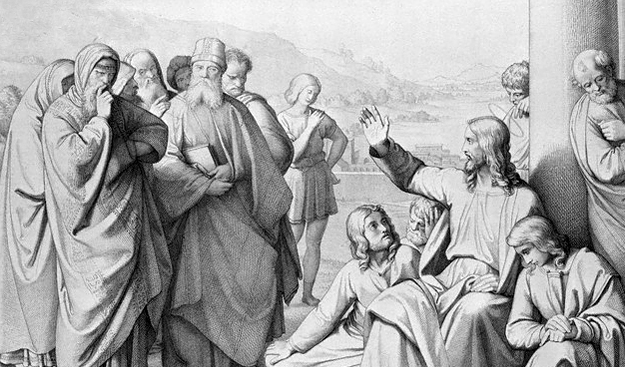It’s easy to get caught up in the readings and see the scholars and Pharisees as the bad guys. It’s much more helpful if, instead of finding a “them” to blame, we try to see what it says to us in the reading. While most of us aren’t trained theologians and experts of the law, we live in a world full of instant communication. Church teaching is readily available in the Catechism; we have resources like formed, great study bibles, and limitless guided videos on youtube to teach us how to read and pray with the scriptures. As far as information goes, we live in a time and place where we are overloaded with it. Maybe even overwhelmed with it. Notice that Jesus did not rebuke them for having so much knowledge. Knowledge itself is a good thing; one could even say it’s a reflection of one of the perfections of God. God being omniscient, that is, is all-knowing. What Jesus condemns them for is not putting that knowledge into practice.
“You have taken away the key of knowledge. You yourselves did not enter, and you stopped those trying to enter.”
The scholars were well aware of the moral precepts and purpose of the law. They had the key to understand it. Yet, they kept it to themselves, not sharing with the multitudes. They weren’t living it out. They knew all the rules, studied diligently, and could answer any question. Still, the mercy and justice of God weren’t a part of their behavior. It wasn’t a part of who they were.
It’s a trap we can fall into as well. We hear the Gospels so often at Mass. We study our bibles and our Catechisms and learn them. How many explanations of the meanings of the Gospel and the Sacraments have we heard or seen over the years? We know the moral expectations of the Church, and we know that those “rules” are there for our good. That everything the Church does is ordered not to condemnation but salvation. Our faith has taught us that our lives flourish and our faith grows when we follow those moral precepts; it teaches us that we are responsible for spreading the Gospel throughout the world, and we are painfully aware that we do not find true happiness in pleasure, honor, power, or wealth.
The question then today is: Do we live it? Do we dedicate our lives and our time to bringing others to Christ and His Church? Do we direct our energies toward living in communion with God? Trusting that He will provide anything and everything we need? Does our life reflect those beliefs? So often, people try to fit God into their schedule. They list everything they have to do today and then carve out a free moment here or there. That’s the wrong order. We should put God into our schedule first and then live our lives around that. Today’s readings challenge us to take an objective look at our own lives. Because we have been given the key to knowledge, it’s not some hidden or esoteric gnostic thing, but rather the glory of God revealed to us through the Church. Are we entering it fully? And maybe, most importantly, as a disciple of Christ, does my life encourage others to want to encounter Jesus in the Eucharist?
We have been given the key. But, remember, the Scribes didn’t just have the key; these law experts didn’t enter the depth of the Mystery. They didn’t allow the knowledge of God to change them, to mold them in the imago Dei. Not only that, their actions and deeds prevented others from entering it. We should be painfully aware of the damage that has been done by people inside the Church. When we harm someone, when we injure them physically, emotionally, or spiritually, we can be the ones “preventing them from entering.” We can drive them from the Church and tarnish their understanding of God and the Gospel. So let’s use our keys well and with them open doors instead of locking them.
A homily for the Thursday of the 28th Week in Ordinary Time: October 14th, 2021

